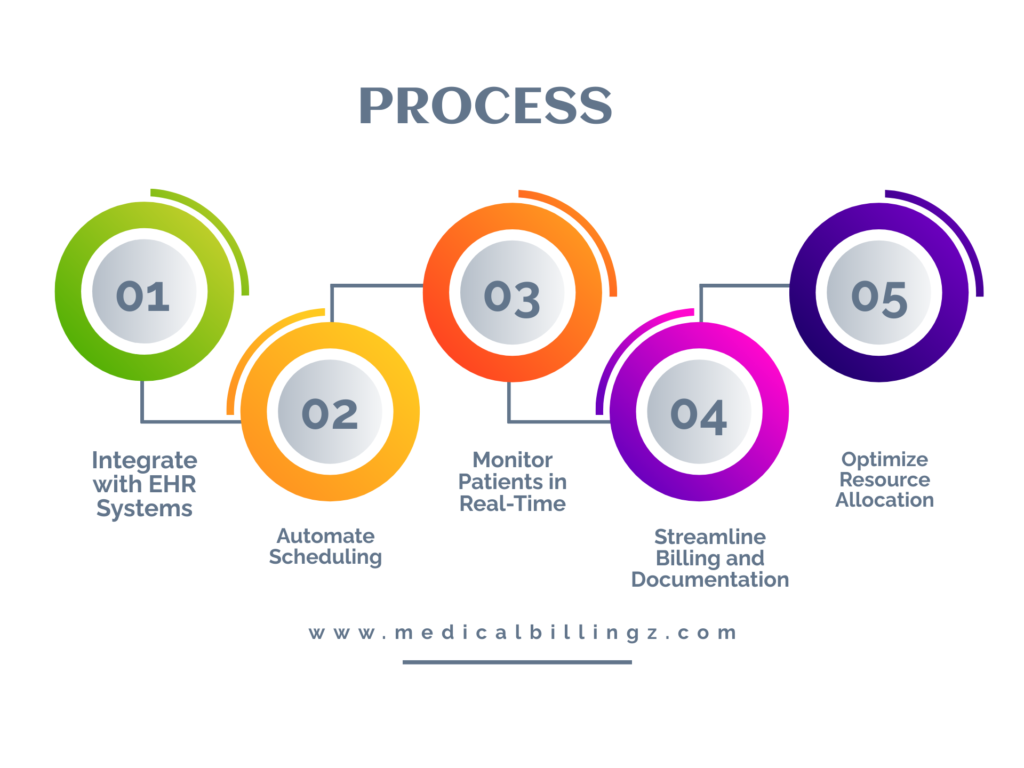Efficient billing practices are critical for the success of any healthcare facility, especially surgery centers. “Billing Clinic Surgery Center” is a term that encapsulates the systems and practices necessary for managing patient billing effectively. In today’s fast-paced healthcare environment, surgery centers must juggle numerous administrative tasks alongside providing high-quality patient care. Billing, being one of the most essential components of the administrative workflow, directly impacts the financial stability and operational efficiency of the center.
Importance of Billing Clinic Surgery Centers
Billing in Billing Clinic surgery centers is a complex process that goes beyond sending invoices. It plays a pivotal role in maintaining the financial health of the clinic while ensuring compliance with industry regulations. Surgery centers cater to various procedures, often involving multiple insurance providers, codes, and documentation.
Key Benefits of Efficient Billing Practices
- Improved Cash Flow: Accurate billing ensures timely reimbursements and reduces the chances of denied claims.
- Patient Satisfaction: Clear and transparent billing processes enhance patient trust and satisfaction.
- Regulatory Compliance: Adhering to billing regulations prevents legal and financial risks.
- Operational Efficiency: Streamlined billing reduces administrative burdens and allows staff to focus on patient care.
Challenges in Billing Clinic Surgery Centers
Billing Clinic Surgery centers face unique challenges in their billing processes due to the nature of outpatient procedures and high patient turnover. Understanding these challenges is crucial to developing effective solutions.
These challenges can impact financial performance, patient satisfaction, and overall operational efficiency. Let’s explore these challenges in detail:
1. Complex Medical Coding Systems
Medical coding is the backbone of the billing process. Billing Clinic Surgery centers rely on precise use of Current Procedural Terminology (CPT) and International Classification of Diseases (ICD) codes to bill for services rendered. Each procedure, diagnosis, and service must be accurately documented and coded. However, this complexity often leads to errors, such as:
- Incorrect or incomplete coding.
- Failure to use updated codes as per new regulations.
- Misinterpretation of coding guidelines, especially for bundled services.
These errors can result in claim denials, delayed reimbursements, and non-compliance penalties.
Learn more about Simplified Billing Clinic Surgery Center for Providers
2. Insurance Verification and Authorization
One of the most time-consuming aspects of Billing Clinic Surgery Center is verifying patient insurance eligibility and obtaining pre-authorizations for procedures. Surgery centers frequently encounter the following issues:
- Insurance plan discrepancies where covered services or providers are misunderstood.
- Lack of timely responses from insurance companies, leading to postponed procedures.
- Failure to verify coverage details accurately, causing patients to face unexpected out-of-pocket costs.
These challenges disrupt workflow efficiency and can negatively affect the patient experience.
3. High Rate of Denied Claims
Denied claims are a major concern for surgery centers. They often stem from minor errors or omissions in the billing process, such as:
- Incorrect patient information (e.g., name, date of birth, or insurance ID).
- Missing documentation to substantiate a claim.
- Procedural errors, such as filing claims under the wrong payer or within incorrect timelines.
- Lack of clarity in communicating with insurance companies.
Repeated claim denials not only result in revenue loss but also increase the administrative workload to resubmit or appeal claims.
4. Challenges with Patient Payment Collection
Collecting payments from patients can be a delicate and challenging process. With high-deductible health plans becoming more common, patients are often responsible for a significant portion of their medical bills. Key challenges include:
- Patients’ inability or unwillingness to pay their bills on time.
- Lack of clear communication about costs, leading to disputes.
- Ineffective payment plans or systems that don’t cater to the financial needs of patients.
These challenges can strain patient relationships and lead to higher rates of unpaid bills.

5. Regulatory Compliance and Audits
Surgery centers are required to comply with an array of state and federal regulations. Staying updated with changing rules, such as those from the Centers for Medicare & Medicaid Services (CMS) or the Health Insurance Portability and Accountability Act (HIPAA), is an ongoing challenge. Key concerns include:
- Adjusting to frequent changes in billing codes and payer rules.
- Ensuring privacy and security of patient data to avoid HIPAA violations.
- Preparing for audits by maintaining meticulous records and documentation.
Non-compliance can lead to severe penalties, loss of payer contracts, and reputational damage.
6. Inconsistent Billing Processes
Without a standardized billing process, surgery centers may experience inconsistent workflows across departments. This lack of uniformity can lead to:
- Variability in data collection and documentation.
- Confusion among staff, resulting in duplicate or missed claims.
- Reduced efficiency, as more time is spent fixing errors rather than focusing on patient care.
7. Dependence on Outdated Technology
Many surgery centers still rely on outdated billing systems or manual processes. These legacy systems often lack the features needed to handle modern billing challenges, such as:
- Automated claim submission and tracking.
- Real-time insurance verification.
- Integration with electronic health records (EHRs) for accurate data transfer.
Outdated technology can lead to inefficiencies, increased administrative costs, and a higher error rate.
Learn more about Billing Clinic Surgery Centers for Providers
Best Practices for Billing Clinic Surgery Centers
To optimize billing processes, surgery centers must implement best practices that address common challenges and improve efficiency.
1. Accurate Patient Information Collection
Collecting and verifying accurate patient information upfront is the foundation of successful billing. This includes demographics, insurance details, and medical history.
2. Robust Insurance Verification
Verify insurance coverage before the procedure to avoid surprises. Ensure the patient’s plan covers the services being rendered.
3. Training and Development
Provide regular training for billing staff to keep them updated on coding standards, compliance requirements, and billing software.
4. Use of Advanced Billing Software
Invest in billing software tailored for surgery centers. Features like automated coding, claim tracking, and reporting can streamline processes.
5. Regular Audits
Conduct periodic audits of billing processes to identify and rectify errors before they escalate into bigger problems.
6. Effective Communication with Patients
Transparent communication about billing policies, estimated costs, and payment plans can reduce confusion and improve collections.
Steps to Implement a Successful Billing Clinic Surgery Centers
Implementing a streamlined billing system requires a step-by-step approach to ensure effectiveness and sustainability.
Step 1: Assess Current Processes
Evaluate the existing billing workflow to identify areas of improvement. Analyze claim denial rates, payment timelines, and patient feedback.
Step 2: Choose the Right Software
Select a billing solution that caters specifically to the needs of surgery centers. Look for features like user-friendly interfaces, real-time analytics, and compliance tools.
Step 3: Train the Staff
Ensure all staff members, including front-office personnel, are well-versed in the billing system and compliance regulations.
Step 4: Monitor Key Performance Indicators (KPIs)
Track KPIs such as claim acceptance rates, days in accounts receivable, and patient payment collection rates to gauge performance.
Step 5: Stay Updated with Regulations
Regularly review updates from CMS (Centers for Medicare & Medicaid Services) and other regulatory bodies to maintain compliance.

Role of Technology in Billing Clinic Surgery Centers
The integration of technology has revolutionized billing practices in surgery centers. Automation and data analytics have significantly reduced errors and improved efficiency.
Benefits of Technology Integration
- Automated Coding: Reduces manual errors and ensures compliance with coding standards.
- Real-Time Claim Tracking: Helps track claim statuses and identify bottlenecks.
- Data Security: Ensures sensitive patient data is protected through secure systems.
- Reporting and Analytics: Provides insights into billing performance and helps identify areas for improvement.
Table: Key Elements of Billing Clinic Surgery Centers
| Aspect | Description |
|---|---|
| Patient Information | Collect demographics and insurance details. |
| Insurance Verification | Confirm coverage before procedures. |
| Accurate Coding | Use correct CPT and ICD codes. |
| Claims Management | Submit and track claims effectively. |
| Payment Collection | Implement clear policies for patient payments. |
| Compliance | Stay updated with regulations and guidelines. |
Future Trends in Billing Clinic Surgery Center
The billing landscape for surgery centers is evolving rapidly, driven by advancements in technology and changing patient expectations.
Emerging Trends
- Artificial Intelligence (AI): AI-powered tools are enhancing coding accuracy and identifying patterns in denied claims.
- Telehealth Integration: With telehealth becoming more prevalent, billing systems are adapting to include remote consultations and services.
- Value-Based Billing: Emphasis on patient outcomes rather than service volume is reshaping reimbursement models.
- Blockchain Technology: Ensures secure and transparent transactions in medical billing.
Error: Contact form not found.
Conclusion
Efficient billing practices are vital for the smooth operation of surgery centers. By addressing common challenges, adopting best practices, and leveraging technology, surgery centers can optimize their billing processes and ensure financial stability. Billing Clinic Surgery Center represents the cornerstone of operational excellence, enabling these facilities to focus on what truly matters—delivering exceptional patient care.
FAQs
What is the role of technology in surgery center billing?
Technology plays a vital role in automating coding, tracking claims in real-time, securing patient data, and providing analytical insights into billing performance. Advanced billing systems help reduce errors, save time, and improve overall efficiency.
What is the difference between surgery center billing and hospital billing?
Surgery center billing is typically for outpatient procedures and involves shorter patient stays, whereas hospital billing may include inpatient care with more complex billing structures. Surgery center billing often requires specialized knowledge of procedures and coding specific to ambulatory settings.
How can surgery centers handle denied claims effectively?
Handling denied claims involves:
- Identifying the root cause of the denial, such as coding errors or missing documentation.
- Resubmitting claims with corrections promptly.
- Communicating with insurance providers for clarification.
- Regularly auditing and improving the billing process to reduce future denials.

